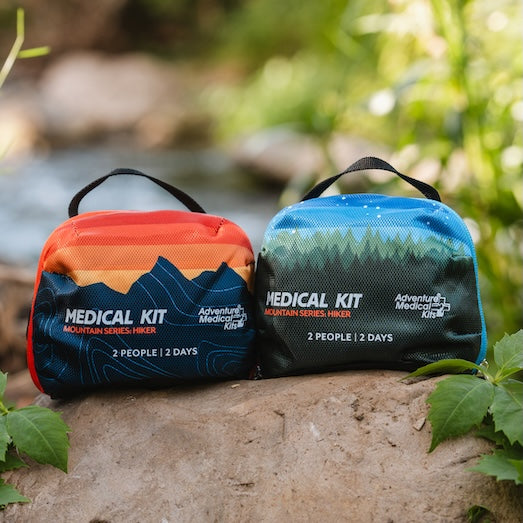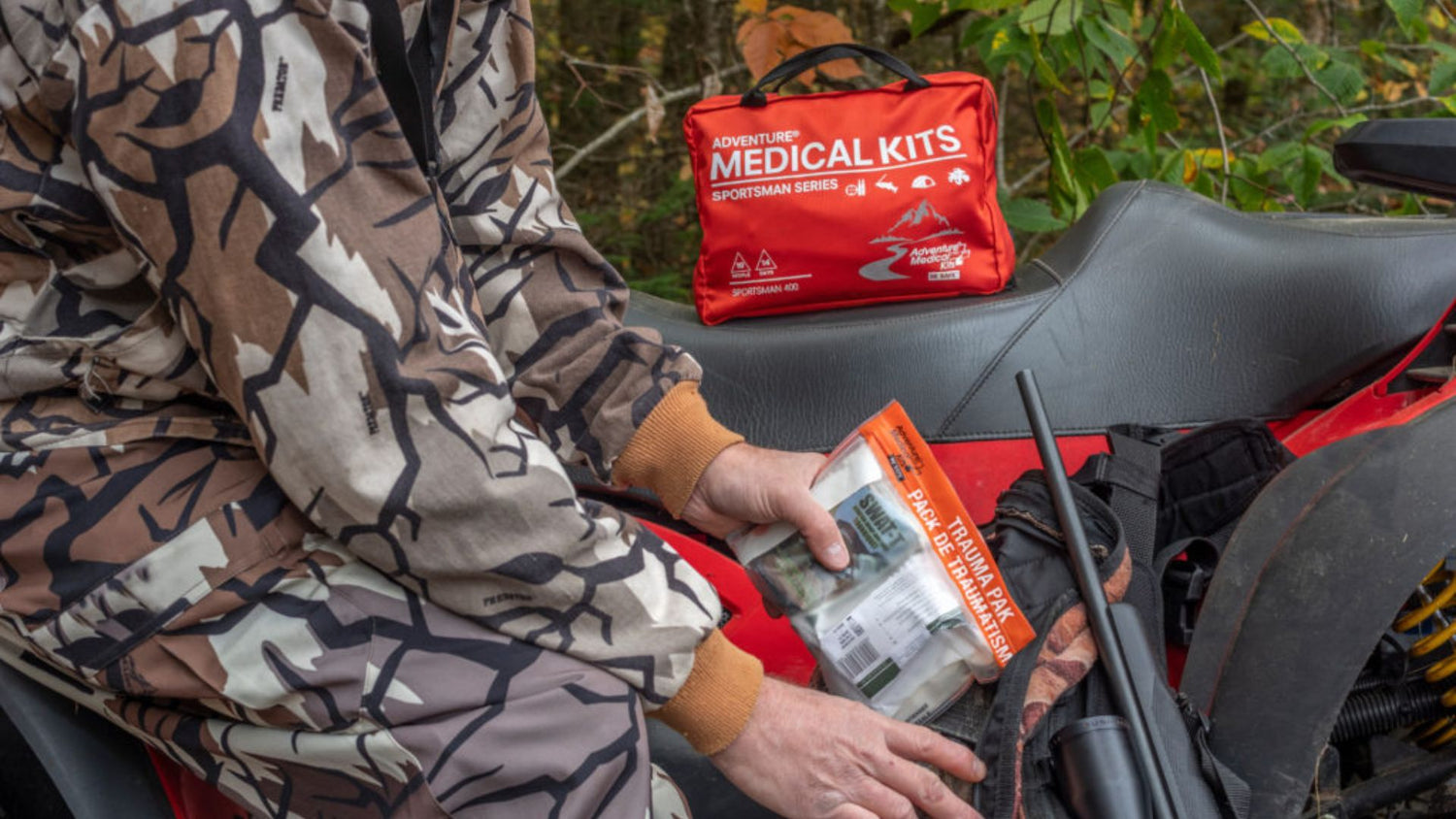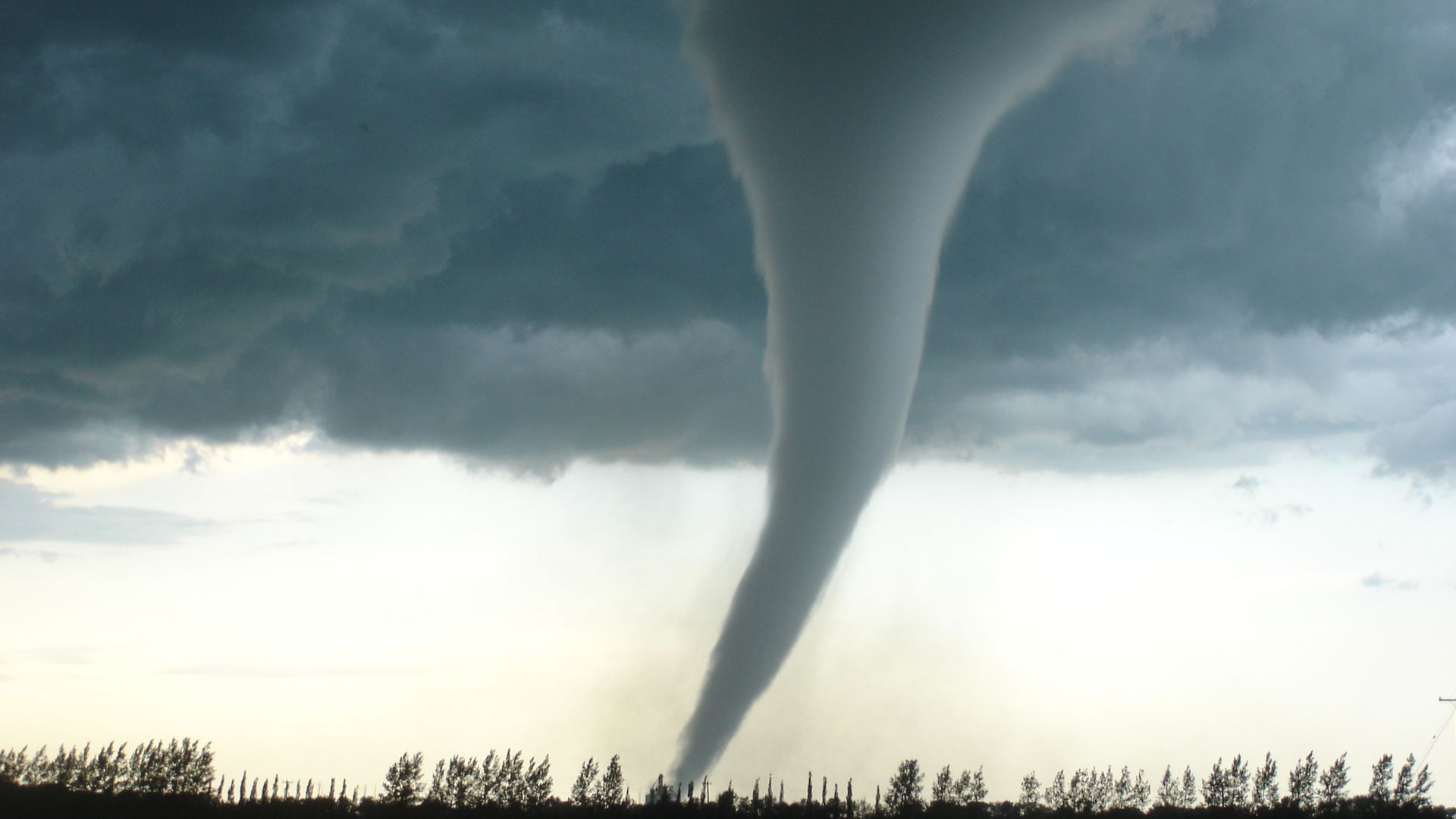By Buck Tilton
When bullets and arrows start filling the autumn air, we know a few of them will strike a hunter and fewer still non-hunters. Everyone knows the danger of a loaded gun, but gunshot wounds during hunting season—at least gunshot wounds to and from hunters—are on the decline, says the US Forest Service, probably due to mandatory hunter safety courses. While this is not a time to be less than perfectly careful with a firearm—with new hunters hitting the field each year—statistically (depending on where and how you hunt), there may be dangers greater than a rifle or a bow when it comes to hunting accidents.
Hunting Accident #1: Falls From Treestands
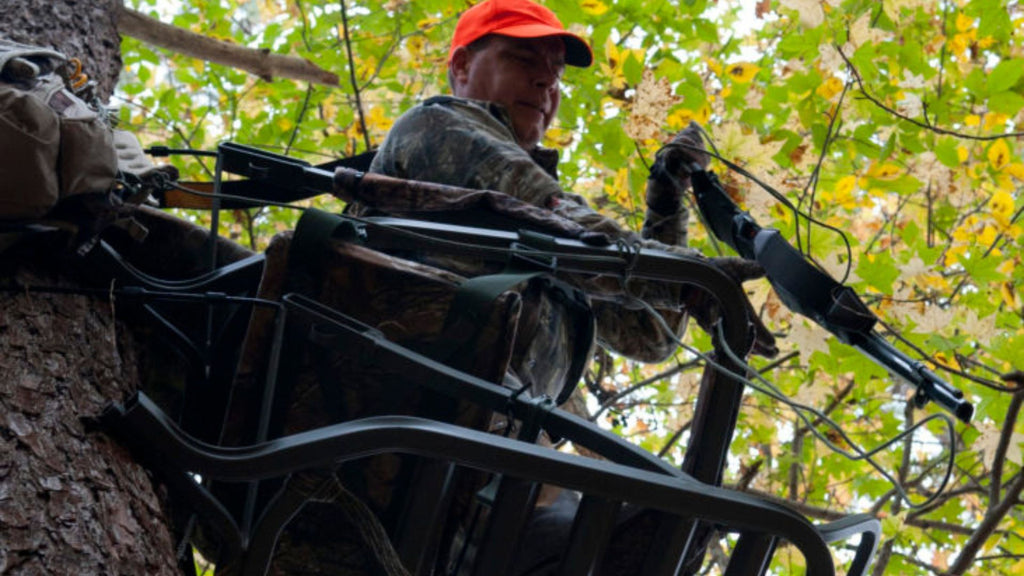
If you hunt from a treestand, the chance of serious injury from a fall ranks at the top of the hunting accidents risk list. Hunters zeroed in on an animal often slip from treestands. They also fall climbing up and down from the stand, when they snooze in a stand, and when an old or improperly mounted stand collapses. These hunters frequently break something when they land, and injuries to the head and spine sometimes result in death.
Remember: always raise and lower your unloaded gun with a rope so you can focus on the climb. Always check the stand carefully before putting your weight fully on it. Old, permanent, wooden stands deteriorate rapidly with age, making them the most dangerous. Once in the stand, strap yourself into a safety harness before hauling up your firearm—and if you have no harness, you may have made a fatal error.
Hunting Accident #2: Hypothermia
Most hunters who suffer a dangerous loss of body core temperature spend much longer away from a vehicle or cabin than they intended, and they’re out there longer because they get disoriented. An unexpected night out, even an unexpected afternoon out on a wintry day, and loss of inner heat can quickly reduce your ability to think, leading to even more profound disorientation. Fatigue rapidly overcomes the hunter. Inadequately clothed, without food and water, with no way to start a fire, the hunter succumbs to the cold.

Remember: always dress in layers of clothing, removing outer layers when you heat up from exertion to prevent drenching with sweat and adding layers back on when a chill sets in. Always carry an extra layer or two in your pack, along with snacks and non-alcoholic fluids, and the means to ignite a blaze. Scout the area in which you’ll hunt well before the season. Carry a map and compass, and know where you are on the map at all times. And, if you have cell phone reception, carry your phone, too.
Hunting Accident #3: Drowning
The third hunting accident threatens those who shoot from boats, who cross rivers, and who step onto ice-covered lakes. In every season, most victims of drowning never intended to get in the water, and that is certainly true of someone carrying a firearm. In icy water, your coordination can drop to nothing in 60 seconds.
Remember: always wear a personal flotation device when you’re paddling out to shoot. Do not wade through running water unless the level is well below your knee and you are absolutely sure of the bottom (You’re never sure unless you’ve crossed that river before!). Never walk out onto ice-covered lakes and ponds. If you disobey the rules and end up in over your head, immediately discard your rifle or shotgun and put all your effort into reaching a safe spot.
In every instance—treestand, cold weather, or deep water—your well being is your business. Luck favors the wise, not the bold.
Recommended Gear List:
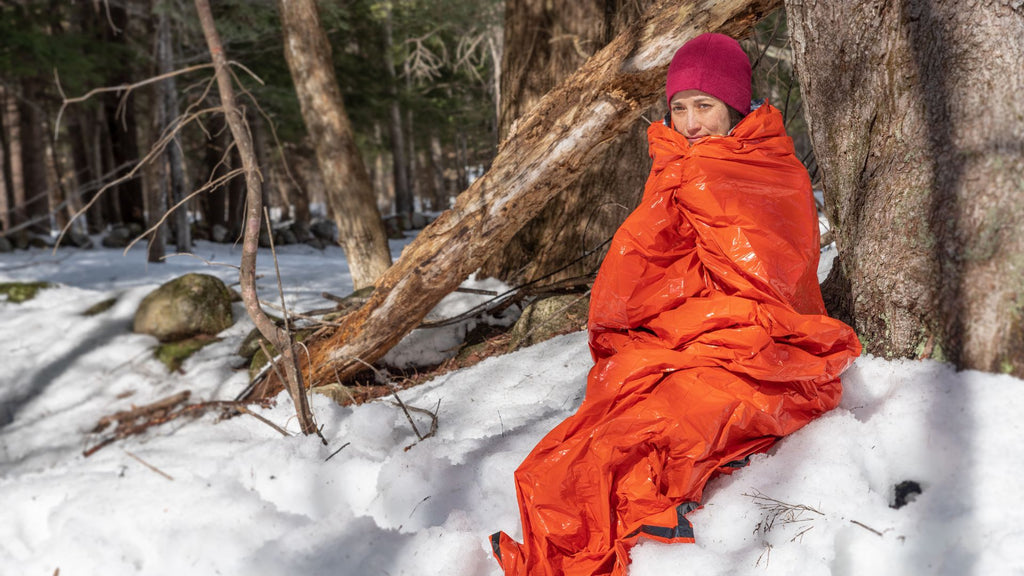
The compact Emergency Bivvy helps you survive unexpected cold weather or nights out.
Emergency Bivvy – Reflects back 90% of radiated body heat. This pocket-size, ultralight 3.8 oz. bivvy is an indispensable piece of equipment – especially for surviving the unexpected night outdoors.

